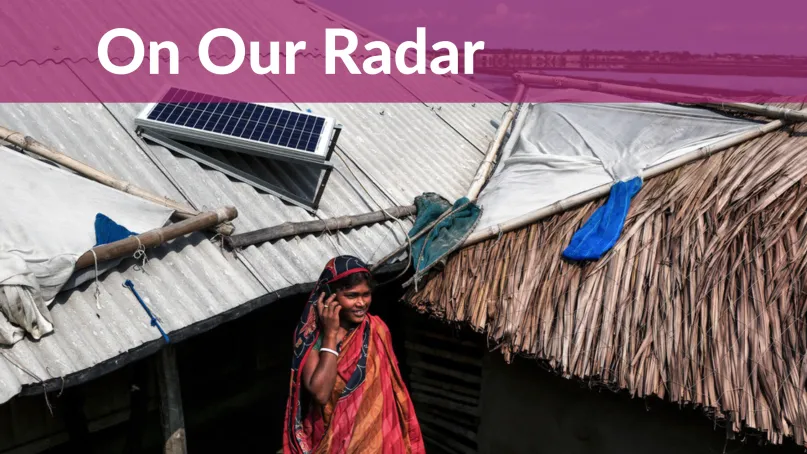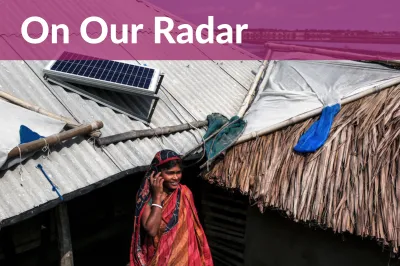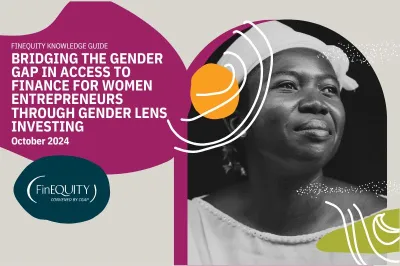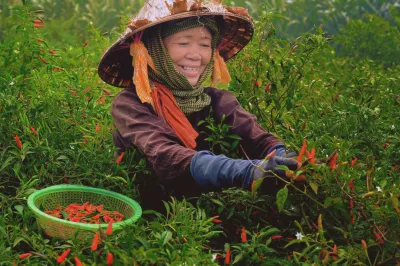On Our Radar: September 2024

An updated take on "What We're Reading". The FinEquity Africa team brings you a curated list of women's financial inclusion and economic empowerment content we've been consuming recently, from podcasts, new initiatives and articles to videos and social posts.
On Our Radar
Designing Cash Transfer and Graduation Programs to Support Women’s Economic Activity: Synthesis of Recent Literature
Women are particularly vulnerable to poverty, given inequitable gender dynamics that may limit ownership of productive assets, decision-making, control over money, and access to markets. A number of interventions—including graduation programs and cash transfers—have emerged as effective tools to alleviate poverty and improve well-being. However, less is known about how these interventions can simultaneously enhance household well-being while improving women’s empowerment. To better understand how cash transfers and graduation programs can improve the lives of women, this review summarizes the impact of these programs, as well as variations in design and delivery, on economic, and non-economic outcomes among female recipients.
Policy Model for Gender Inclusive Finance
The Gender Inclusive Finance (GIF) policy model was created to guide regulators and policymakers in fostering greater financial inclusion for women. Drawing on successful policies, experiences, and lessons from AFI members, the GIF policy model consolidates global knowledge and showcases effective approaches that are advancing women’s financial inclusion and narrowing gender gaps in formal financial services access and usage. For the first time, policymakers can access a framework based on empirical evidence from around the world, designed to guide the development and implementation of effective policies.
Climate Change Impacts and Intimate Partner Violence in Sub-Saharan Africa
This recent report from UNFPA, the International Institute for Applied Systems Analysis (IIASA), and the University of Vienna reveals that rising global temperatures are leading to increasing rates of intimate partner violence. The collapse of agriculture, water scarcity and housing insecurity is a further trigger - leading to increased conflict and risk of women and girls suffering physical and emotional abuse. Natural disasters linked to warming temperatures trigger forced displacement, which is associated with higher levels of intimate partner violence.
Advancing Financial Inclusion Through Platform-enabled Financial Services
This report unveils the revolutionary role of digital platforms in reshaping traditional offline businesses across India, Indonesia, and Kenya. From local nanostores to delivery and ride-hailing services, the report explores how digitalization intersects with poverty and gender, highlighting the journey towards more inclusive and empowering opportunities. It serves as a call for a coordinated effort among governments, private sector players, and civil society to be intentional in creating an inclusive digital future. It provides a roadmap for leveraging the power of digital platforms to create more equitable and prosperous economies, and shows where digital platforms can extend the reach and impact of financial services.
Climate Resilience: Bhanvaben's Story
Climate-related shocks have become more frequent, resulting in losses in harvests and crops for smallholders. A small-scale farmer from India, Bhavnaben is facing more heatwaves, unseasonal rains, and flash floods, making it harder to grow crops. In this video we learn how with support from Self Employed Women’s Association (SEWA), Bhavnaben was able to take out a loan with a low interest rate to buy a precision pump. Now with better irrigation, she can grow a wider variety of vegetables on her farm to diversify her risk. Stories like Bhavnaben’s show how access to innovative financing solutions have real value for rural women, helping them adapt, build their climate resilience and thrive in the face of climate change.


